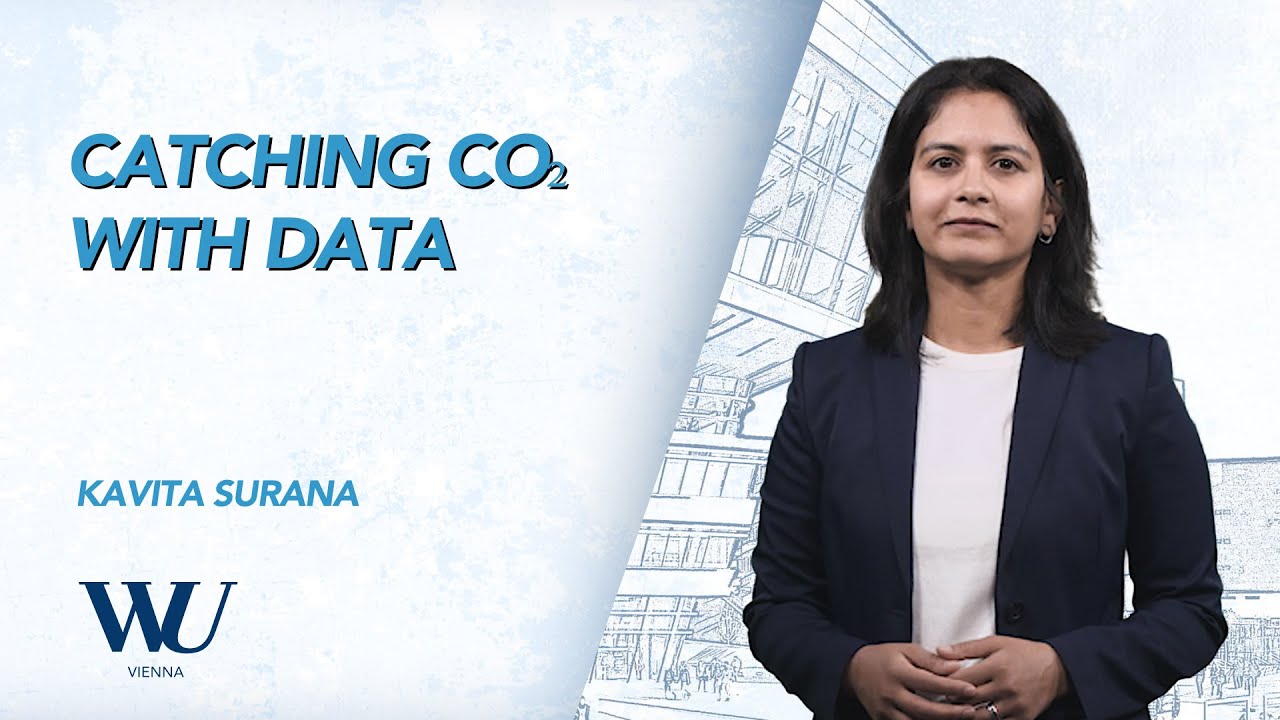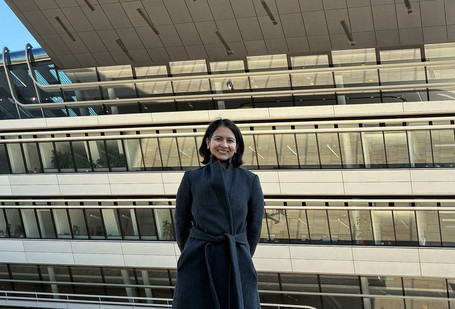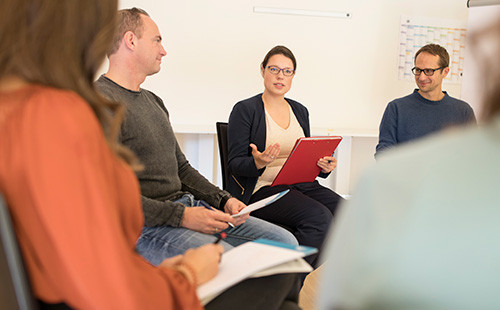Kavita Surana

Catching CO2 with Data
Progress in climate technology…
To limit global warming to 1.5 °C as per the Paris Agreement, global carbon emissions must fall to net zero by mid-century. However, around three quarters of the required emission reductions rely on technologies that are not yet fully mature.
In two international studies, Prof. Kavita Surana from WU Vienna’s Institute for Data, Energy, and Sustainability has investigated how data-based models and targeted investments in climate technologies can help pave the way to carbon neutrality.
Progress in climate technology does not happen by chance
The first study presents a model for predicting the growth pathways of new technologies. The researchers combined historical empirical data on the adoption of earlier technologies, such as solar power and natural gas infrastructures, with indicators regarding the early market adoption of relevant innovations. The second research paper looks at the financing dynamics in the climate tech sector, based on data from around 2,900 US-based startups.
The results:
Depending on the growth pathways chosen, the potential of the new climate technology DACCS (direct air carbon capture and storage) ranges from 0.2 to 4.9 gigatons of carbon removal per year by 2050.
Startups that receive both public grants and corporate investments increases success rates by up to 155%.
No matter if we are looking at approaches for modeling new technologies or at effective ways of funding startups – data, analyses, and strategic alliances between government, research, and business are crucial for helping innovations scale quickly.

“Reaching net zero will only be possible if we understand how innovation arises and what conditions are needed for innovations to thrive,” Kavita Surana points out.
From physics to energy policy: “I always wanted to change the world.”
Prof. Kavita Surana is an expert on innovation and technological change and researches energy and climate policy. She originally started out as a researcher in materials physics, but she soon realized that technological innovations alone were not enough to solve global energy problems.
“I wanted to develop technologies that would really make a difference,” she says. “But at some point, I realized that political and social conditions also play a crucial role. Without the right policies, even the best technologies cannot reach their full effect,” she explains.
In her current research and teaching work at WU Vienna, Kavita Surana focuses on data and evidence that links technologies, investments, and public policy for steering decisions towards energy and climate goals.
A deep personal and professional commitment to climate protection
When asked whether she thinks of herself as having an environmentally friendly and climate-conscious lifestyle, Kavita Surana doesn’t need to think twice. “In general, I use public transportation,” she says. “But the key thing for me was that, back when I was 17, I decided to pursue a career in science with a focus on climate protection because I always knew I wanted to make a difference. So my biggest contribution is actually my job,” she explains.
As a researcher, Kavita Surana focuses on how climate technology innovations can be funded and promoted. In her work, she turns the spotlight on clear areas for policy action, for example when it comes to supporting high-risk technologies or the regulation of investments.
“Different types of investors play different roles, and corporations, in particular, are becoming increasingly important in climate technology. That’s why we need smart incentives to ensure that private and public funding work hand in hand,” Kavita Surana explains.
Programs such as the ones run by US authorities such as Advanced Research Projects Agency ‑ Energy (ARPA-E) or the New York State Energy Research & Development Authority (NYSERDA) are good examples of how public funding can help to consolidate emerging technologies and strengthen startups. “These initiatives create spaces for innovation – and for new partnerships between researchers, industry, and government,” Professor Surana points out.
At the same time, she also warns of the negative effects such collaborations can have. “When large corporations exploit the expertise of small startups, this can threaten the existence of the fledgling businesses. This is where the government must step in to provide protection and guidance,” Surana says.
Bringing together science, government, and society
Surana sees her role not only in academic research but also in communicating and exchanging ideas with decision-makers. “I try to contribute my findings to policymaking processes,” she says. “I don’t know if this always has a direct effect, but I believe that it’s always helpful when science, politics, and society engage in a closer dialogue with each other.”
Kavita Surana’s response to climate change denial is a pragmatic approach: “My focus is on developing solutions that achieve multiple goals at once. Goals such as security, jobs, resource conservation, and climate protection. If we make progress in this way, we can move forward without getting bogged up in endless debates,” she says.
A favorite place with a view
“When I have visitors from out of town, I always take them to the WU University Library. It’s simply one of the most beautiful places we have here,” Kavita Surana says. But it’s not just the library and the campus that she likes about WU and Vienna. “I love the contrast in this city. There’s historic Vienna with all its buildings, and then there’s also this open, modern campus surrounded by greenery. It’s a place that truly lends itself to working on a brighter future,” she says.
Kavita Surana, head of the Institute for Data, Energy, and Sustainability at WU Vienna and associate faculty member at the Complexity Science Hub
Download the studies:
Kennedy, K.M., Edwards, M.R., Doblinger, C., Thomas, Z.H., Borrero, M.A., Williams, E.D., Hultman, N.E. and Surana, K., 2024. The effects of corporate investment and public grants on climate and energy startup outcomes. Nature Energy, 9(7), pp.883-893.
Edwards, M.R., Thomas, Z.H., Nemet, G.F., Rathod, S., Greene, J., Surana, K., Kennedy, K. M., Fuhrman, J., and McJeon, H.C., 2024. Modeling direct air carbon capture and storage in a 1.5 °C climate future using historical analogs. Proceedings of the National Academy of Sciences, 121(20), p.e2215679121.
General references (excerpt):
Report: The State of Energy Innovation, IEA - International Energy Agency. Published: April 2025.
Report: The State of Carbon Dioxide Removal, 2nd edition. Published: May 2024.
WU matters. WU talks.
Watch the full video of Prof. Surana´s lecture and discussion on “Clean Energy. Local approaches and globally aligned action” (29.10.2025), part of our event series WU matters. WU talks.
Here you also find a summary: WU Blog.
